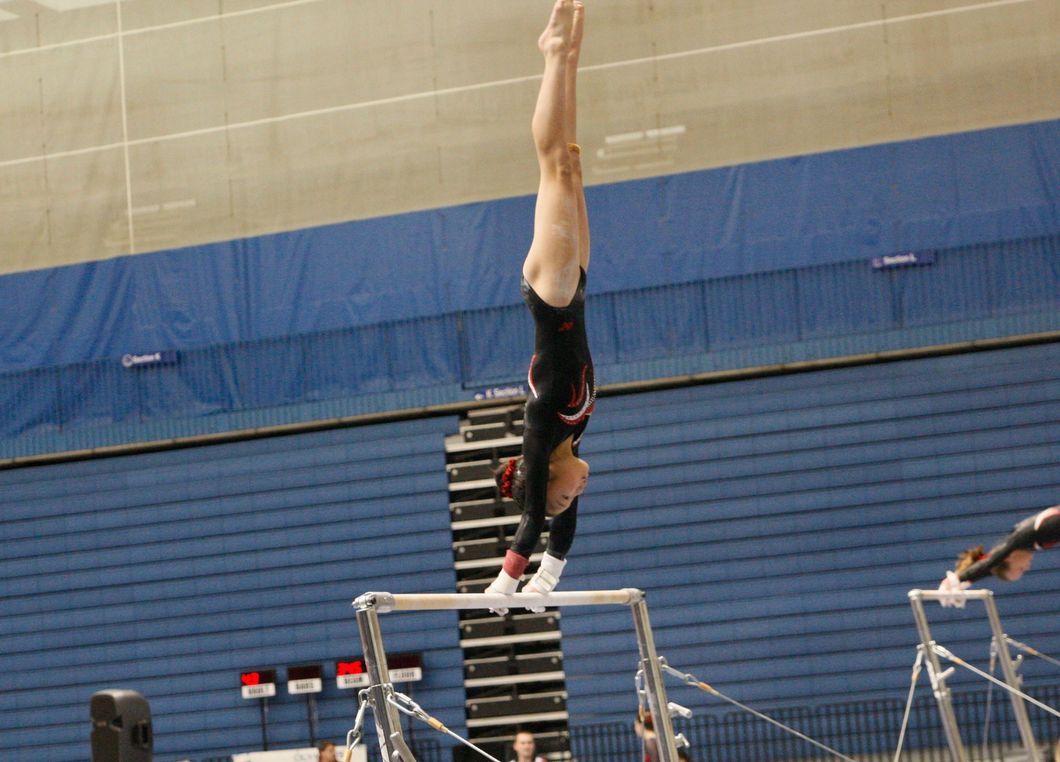"How could something like this happen?" I was asked, "Did you ever experience anything like this?"
These were the questions that followed me following Larry Nassar's whirlwind trial and subsequent sentencing. I never knew how to respond. Myself, along with so many gymnasts, were angry. Key word angry; shockingly, not surprised. The media pointed fingers at Nassar; yet, no one questioned the sport itself. During my time with USA Gymnastics, the organization supported an environment where coaches were free to physically and mentally abuse their athletes. I was one of those athletes, and this article is my story.
I started gymnastics at 18 months old with mommy-and-me classes. I was placed on "pre-team" (a precursor to the competition team) by age 4, and I started competing at age 6. Rather than birthday parties and playdates with friends, I spent up to 30 hours training in the gym each week. My best friends were my teammates, and I saw my coaches more than I saw my own parents. I was on the elite track at age 11; I was deemed an Olympic hopeful. The label appeared as a glowing achievement; upon reflection, however, being labeled as the "best" was not worth the physical and mental damage that ensued.
Gymnastics is more important than academics.
Gymnastics is more important than health.
Gymnastics is more important than happiness.
That was the rhetoric that our coaches instilled in us, and that was the rhetoric that silenced my voice.
At some point between ages 11 to 12, I tore my meniscus. I cannot pinpoint the exact moment since my injury was not diagnosed until I was 14 years old. I remember feeling my knee painfully pop and click whenever I ran, walked, or jumped. I can recall the searing pain that shot through my leg every time I landed a dismount, tumbling pass, or vault. I can vividly see my purple kneecap and blue toes after tightly taping my knee in a failed attempt to numb my pain. There were days when I could not walk. I was in sixth grade, hobbling down the stairs at school, struggling to make it to my next class without crying.
Even with all these blatant symptoms, my coaches did not believe me. I was told that I was faking my injury to get out of assignments, and that my body was hurting because I had gained weight. At the time, I weighed less than 100 pounds.
My meniscus tear later contributed to a series of other injuries. As I tried to compensate for the mounting pain in my knee, I subjected my other body parts to other injuries: one broken wrist, multiple sprained ankles, and two calcified achilles tendons. Each injury--barring my broken wrist--was written off as an excuse that should instead be attributed to a change in my weight.
Like many pre-teens, at age 13, I went through puberty. I gained some weight, but I was still small and athletic. My coaches, however, made me feel like a whale. I was pulled aside during my morning practice by my head-coach. She scolded me, "Your parents make a lot of sacrifices for you to attend this gym. You cannot be putting on weight; you're getting fat, and you need to lose the weight to be good."
I remember holding back tears and nodding. I could not fight back. I was small, demeaned, and hopeless--silenced.
Later that week, I met with a "diet specialist" who wanted to eradicate real, tangible food from my diet and replace it with powders and juices. I refused. Things went from bad to worse.
Corrections from my coaches turned into personal attacks. After I did not make a correction the first time, my vaulting coach snapped at me, "Are you retarded or something? It's a wonder that your parents send you to private school... It's clearly not paying off."
I nodded with tears in my eyes. I could not fight back.
I was not a stranger to harsh comments and punishment. On my thirteenth birthday, for example, I was told that I was not allowed to get off of the beam until I made thirteen flight series (my custom birthday present from my head coach) in a row. I could not get water, and I could not talk to anyone until the assignment was finished. Getting off would result in thirteen rope climbs. I spent over an hour standing on that beam; I was dizzy, tired, and trapped. Another day, I remember being forced to stay in our splits for over an hour of practice. Our legs were propped up on 8 inch mats, and our arms were forced to stay elevated above our heads. I recall not being able to walk the next day since my hamstrings were effectively overstretched on both sides. Another time, a plastic Nalgene water bottle was thrown at us as we stood on the beams. What about the time that my friend was yanked off the ground and yelled at after ramming her ribcage into the beam?
I could not do it anymore; however, gymnastics was an integral piece of my identity, and I did not know how to leave the sport behind. Thus, after talking to my parents, I decided to move gyms. My knee injury was diagnosed and repaired, and after multiple cortisone shot treatments, my achilles pain became manageable. I was happier. I had a coach who taught me to own my voice. He reminded me that my feelings were valid, and he gave me a sense of individual purpose--a purpose to stay strong and never let anyone silence my pain again.
In short, I was not surprised by Larry Nassar. The environment in which gymnasts survive is toxic; our voices are obliterated and oppressed. Nassar's abuse, an abuse that many of my teammates and friends survived, thrived in this preferred system of silence. I am tired of silence, and I invite other gymnasts to share their stories too--here's to breaking that silence.









































